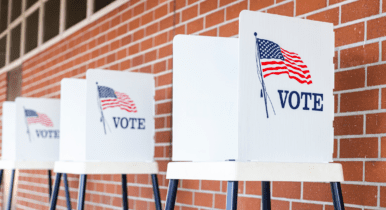‘We Didn’t Believe Our Own Polls’: How Republican Registration Surges Shaped the 2024 Election Landscape
Republican registration efforts in 2024 were so successful that some practitioners on the right couldn’t believe their own polling.
Pollsters often struggle with accurately surveying and predicting the turnout of new registrants and so-called drop-off voters — those who cast a ballot in a recent cycle but then haven’t voted in subsequent cycles.
Brent Buchanan, founder of polling shop Cygnal, noted that “zero-of-four voters” were not a homogenous group this cycle. “There are two types of zero-of-fours: There’s new [registrants] and there’s those who haven’t voted in four elections,” he recently told C&E.
He noted that in places like Georgia and Virginia, there was a surge of new Republican voters. At the same time, those who hadn’t voted in four elections were leaning GOP. “There were a lot of things to look at and say ‘OK, well, this is going to affect turnout more than normal’ because normally zero-of-fours benefit Democrats.”
He added: “A lot of pollsters got it wrong.”
Christine Matthews, president of Bellwether Research & Consulting, said she used a couple of tools to accurately predict turnout in 2024: Self-reporting by survey respondents and then assigning that voter a probability score. “What we did this cycle worked out pretty well — especially with a high-turnout election,” she said.
Mike Thom, who was in his second cycle as political director at the NRCC, said their polling was so favorable to Republicans they questioned its accuracy. “A lot of times we didn’t even believe our own polling,” he said.
He pointed to President Trump’s numbers in California Rep. David Valadao’s (R) district, in the state’s Central Valley, which had gone for President Biden by double digitals in 2020 but flipped to Trump in 2024.
“We were seeing it, but we were kind of like, ‘Is this actually true’? But we were actually pretty spot on.”
He pointed to another double digit Biden seat in New York-17, which Congressman Mike Lawler won. Trump only lost to Harris there by a point.
“I think the polling on our side was pretty darn accurate,” he said. “It’s just wrapping your head around these seats — is it really shifting that much?”

